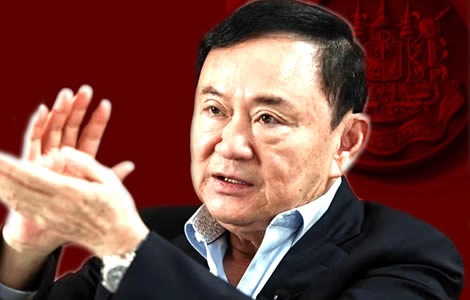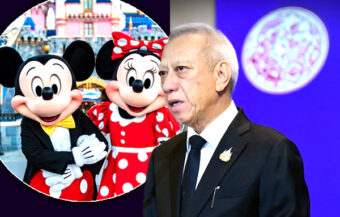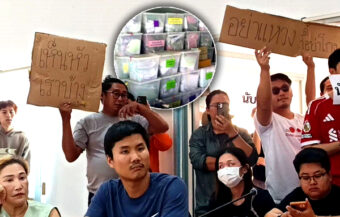Thaksin Shinawatra acquitted by Bangkok court of lèse-majesté and Computer Crimes Act charges from 2016, ending a decade-long legal battle and giving the former prime minister a rare legal victory while he awaits his daughter’s Constitutional Court hearing.
Former Prime Minister Thaksin Shinawatra scored a major victory on Thursday as Bangkok’s Criminal Court acquitted him of lèse-majesté and Computer Crimes Act charges dating back to 2016, a ruling that could ease international criticism of Thailand’s controversial law. Facing up to 15 years in prison if convicted, Thaksin had been blindsided when the case was served after his brokered return to Thailand on August 22, 2023. Now, he can shift focus to his daughter, Prime Minister Paetongtarn Shinawatra, whose Constitutional Court judgement is set for August 29, while also awaiting the Supreme Court’s verdict on his own controversial incarceration on September 19. For today, however, the acquittal offers Thaksin a rare moment to relax and savour a hard-won victory, one that, though expected, still marks a decisive chapter in his turbulent political saga.

Former Prime Minister Thaksin Shinawatra was acquitted on Thursday of charges under Section 112 of the Criminal Code and the 2007 Computer Crimes Act. Consequently, the Criminal Court dismissed the case stemming from a 2015 interview with South Korean media, in which prosecutors claimed he insulted the monarchy. Thaksin consistently denied the allegations and was released on bail throughout the trial.
Earlier in the morning, reporters gathered outside the Criminal Court on Ratchadaphisek Road, where heightened security had already been established. Moreover, court police and officers from Phahonyothin Police Station erected steel barriers, blocking entrances and exits. Therefore, media were confined to designated zones and required to wear temporary press credentials. Journalists were prohibited from entering the courtroom or observing proceedings, ensuring tight control over information. Additionally, authorities monitored crowd behaviour closely to prevent unrest.
Tight security and media restrictions kept journalists outside as crowds gathered near Criminal Court
At 9:30 a.m., Thaksin arrived alongside former Prime Minister Somchai Wongsawat and his lawyer, Winyat Chatimatri. Furthermore, supporters, including prominent politicians and family members, stood nearby, offering encouragement. Security forces maintained tight control, anticipating potential demonstrations from Red Shirt supporters. Indeed, authorities had warned of possible disruptions along Ratchadaphisek Road.
The charges against Thaksin originate from a May 2015 interview with Chosun Ilbo. Prosecutors alleged he made statements insulting the monarchy. Consequently, he faced prosecution under Section 112 and the Computer Crimes Act. If convicted, he could have faced up to 15 years in prison. Moreover, additional penalties under the cybercrime law could have extended the sentence further. Importantly, legal experts warned the case could have broad political consequences.
Significantly, the case traces back to Thailand’s 2014 military coup. Following the coup, the National Council for Peace and Order, or NCPO, directed the Department of Justice to file formal complaints. Subsequently, the Technology Crime Suppression Division investigated. However, since the interview occurred outside Thailand, the case was brought under the Attorney-General’s jurisdiction.
Charges against Thaksin originated from the 2015 interview and the 2014 military coup actions
In September 2016, Attorney General Pongniwat Yutthaphanborihan ruled to indict Thaksin. However, he was abroad, and authorities could not enforce the arrest. Therefore, the case remained unresolved until his return to Thailand in August 2023. Upon arrival, he was immediately confronted with the lèse-majesté charge. Subsequently, his legal team argued the case was a misunderstanding, but the court rejected the petition.
In January 2024, Attorney General Amnat Jetjaroenrak formally presented the charges to Thaksin at Police General Hospital. He denied all allegations and requested further investigation. Nevertheless, prosecutors reaffirmed the indictment. The charges included Section 112, Section 83 of the Criminal Code, and violations of the 2007 Computer Crime Act. Furthermore, the indictment included potential penalties under multiple laws.
The trial progressed rapidly under strict conditions. From July 1–3, prosecutors presented witnesses. On July 16, the defence called three witnesses: Thaksin himself, former Deputy Prime Minister Wissanu Krea-ngam, and Thongthong Chandrangsu, former Permanent Secretary of the Ministry of Justice. Importantly, all hearings were held behind closed doors, ensuring confidentiality. No outsiders were permitted, maintaining strict courtroom secrecy. Additionally, security prevented any unauthorised communication with the public.
Thaksin’s trial continued under closed-door conditions, with witnesses and security closely monitored
Thaksin’s bail was set at ฿500,000, with restrictions preventing international travel without court permission. Despite these conditions, the trial continued smoothly. The verdict was scheduled for August 22, exactly two years after Thaksin returned from exile. Therefore, this timing held symbolic significance for the former prime minister and his supporters.
At 10:00 a.m., Courtroom 902 opened for the final hearing. Nevertheless, media and public attention remained intense. International journalists and Thai reporters closely followed developments from their designated zones. Photographers submitted requests for permission and were limited to taking pictures only from specified areas. Consequently, coverage remained controlled and orderly. In addition, court officials reiterated all rules to prevent violations.
The court ultimately ruled that Thaksin was not guilty of Section 112 and the Computer Crimes Act. Therefore, the judges concluded that his 2015 interview did not constitute lèse-majesté. Consequently, he faced no criminal penalties, marking a major legal victory. Supporters erupted outside the courthouse, celebrating the decision enthusiastically. Furthermore, analysts noted the verdict could influence future high-profile cases.
Court acquits Thaksin of lèse-majesté and computer crimes acts, marking a major legal victory
The political implications are immense. Thaksin is recognised as a central figure behind the Pheu Thai Party. Moreover, his daughter, Prime Minister Paetongtarn Shinawatra, remains in power. Therefore, the verdict reinforces the family’s influence over Thai politics. Conversely, opponents expressed disappointment, warning that the ruling may embolden Thaksin’s supporters. Additionally, the decision highlights tensions between the conservative establishment and populist groups.
Analysts emphasise that Section 112 has historically been controversial. Critics argue it is used to suppress dissent. Yet, supporters insist it protects the monarchy. Moreover, this case illustrates the tension between Thailand’s conservative factions and populist political movements. International observers also noted that secretive hearings and restrictions on the media raised concerns about transparency and democratic norms.
Additionally, the timing of the case fueled speculation. Many believe that reviving a 2015 interview upon Thaksin’s return was politically motivated. Indeed, the trial coincided with Thaksin’s daughter appearing before the Constitutional Court in a separate case regarding her qualifications. National Security Council Secretary-General Chatchai Bangchuad also testified in that hearing.
Verdict highlights Thaksin’s influence and raises questions on political tensions and lèse-majesté law
Observers noted that Paetongtarn performed with poise and composure. Nevertheless, analysts cautioned that her testimony did not fully align with constitutional interpretations.
Yet, the focus on the Criminal Court overshadowed the parallel proceedings. Both cases, therefore, reflect ongoing legal scrutiny of the Shinawatra family. Additionally, political observers warned of potential long-term implications.
Meanwhile, political analysts warned of potential unrest. Large crowds of Red Shirt supporters gathered near the courthouse, demonstrating strong loyalty to Thaksin. Authorities remained on high alert, ready to contain any disorder. Furthermore, they emphasised the importance of separating political demonstrations from court proceedings.
The acquittal again highlights the fragility of Thailand’s political balance. While Thaksin avoids immediate legal jeopardy, his role as a political kingmaker persists. Additionally, the Pheu Thai Party continues to navigate a deeply polarised environment.
Critics predict that the ruling may intensify friction between the conservative establishment and grassroots supporters. Moreover, the decision could shape future political strategy in the country.
Furthermore, the verdict could affect future lèse-majesté cases. Legal experts argue that the decision may set a precedent regarding the interpretation of Section 112 and cybercrime offences. Observers, therefore, expect careful monitoring of how prosecutors handle similar cases in the future.
Acquittal reinforces Thaksin’s political power while raising potential precedent for future lèse-majesté cases
For now, Thaksin remains a polarising figure. Loved by millions and opposed by powerful conservative forces, he continues to shape Thailand’s political narrative. Yet, the court’s ruling does not diminish his influence. If anything, it reinforces his position as a central political actor in the country.
Ultimately, the acquittal marks a significant moment in Thai politics. It resolves a legal battle that spanned nearly a decade. Yet, it also highlights the continuing tension between law, politics and public opinion.
Thaksin’s D-Day before Criminal Court on lèse-majesté. Thailand’s top political player faces judgment
As Thailand navigates these complexities, the Shinawatra family remains a key player. Therefore, the political stakes remain high, and the nation will closely watch how the family and the Pheu Thai Party fare in the coming weeks.
Join the Thai News forum, follow Thai Examiner on Facebook here
Receive all our stories as they come out on Telegram here
Follow Thai Examiner here
Further reading:
Prime Minister Paetongtarn Shinawatra a no-show at cabinet and an appointment with Pheu Thai MPs


















